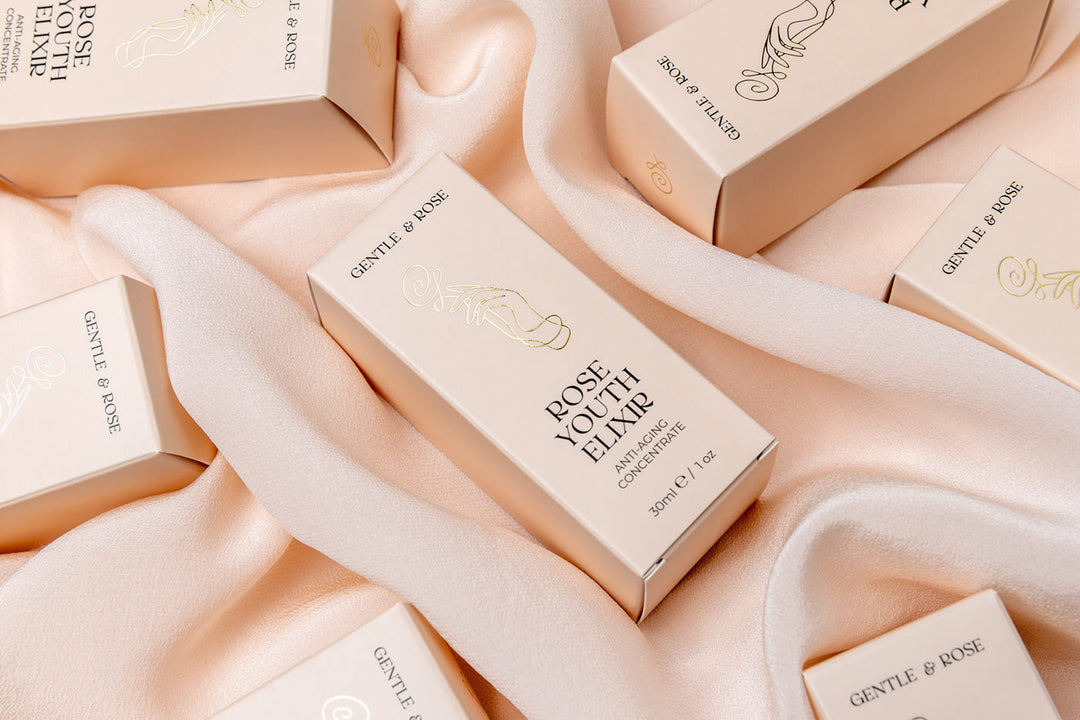Bakuchiol vs. Retinol: The Facts Your Should Know

We all want to look younger and healthier, and ageing is inevitable but what if you can slowly turn back the clock a little bit?
With many of you asking us about the difference between Bakuchiol and retinol, we decided to create a handy little guide that compares the two ingredients.
Retinol has been the gold anti-ageing standard ingredient for many years and it used to be hard to imagine that there could be a better alternative.
However, recent research has shown that there is a new star that is taking the skincare world by storm.
Don’t get us wrong, retinol works, but if you’re after something more natural without the side effects of retinol, then you need to keep reading…
With all the chemicals found in everything from the food we ear, to the household products we use, to the skin care products we put on our bodies, it’s no surprise that so many people are seeking healthier options these days.

Enter Bakuchiol, a 100% natural, plant-derived retinol alternative that’s been hailed as the new miracle ingredient but has actually been around since ancient times.
Now you’re probably wondering “is Bakuchiol really as good as retinol?”, “which one is better?” or “Is Bakuchiol the best alternative to the star of anti-ageing ingredients?”
So, let’s explore all he differences and similarities between Bakuchiol and retinol together.
Retinol is a popular anti-ageing ingredient that stimulates collagen production but often comes with many side effects such as irritattion, peeling and dryness.
It is a vitamin A derivative that’s often created synthetically – some retinol products may even come from animal sources.
Retinol often needs to be used in combination with other products in order to combat the resulting dryness and irritation through big amounts of moisturiser for example.

What is Bakuchiol?
Bakuchiol is a plant extract, derived from seeds and leaves of the Psoralea corylifolia plant (babchi plant), known for its use in traditional Indian and Chinese medicine.
It first hit the skincare scene in the 70’s but hadn’t received much attention until recent research highlighted the effectiveness of its amazing properties.
Bakuchiol can heal, soothe and rejuvenate your skin.
It acts on various receptors that are responsible for ageing, pigmentation, inflammation.

Bakuchiol triggers the pathways in the skin cells that stimulate collagen production which helps to reduce wrinkles, improve skin texture, and stimulate cell regeneration.
The quicker your body can replace the old skin cells, the fresher and younger your skin will look.
A 2014 study showed us that Bakuchiol stimulates the production of collagen in skin cells, improves skin clarity and has anti-inflammatory and antibacterial properties.
Bakuchiol vs. Retinol
Both ingredients increase cell turnover in the same way.
This is the process that stimulates collagen and thus reduces the visibility of fine lines and wrinkles for example.
But what Bakuchiol doesn’t do is decrease the size of oil glands, thus avoiding the dryness and irritation that retinol can create for some.
That’s not the only difference in favor of Bakuchiol:
Unlike retinol, which increases our skin’s sensitivity to the sun, Bakuchiol doesn’t cause this type of sensitivity (with that said, you should always make SPF a top priority in your skincare routine).
Bakuchiol is also safe for all skin types and can be applied both in the AM and PM.
Unlike retinol, Bakuchiol can also be mixed with other ingredients such as AHAs and Vitamin C.
Bakuchiol also protects against environmental skin damage because it is packed full of antioxidants which neutralise free radicals that can damage skins cells.
The only downside to Bakuchiol is the time it takes to show effects. It can take somewhere around 12 weeks to see a noticable change.
We pride ourselves on solving skin problems through finding unique, natural ingredients, and then testing them to make sure they produce real results you can see and feel.
In our Rose Youth Elixir we have a selection of Bakuchiol, Organic Rosa Damascena Oil and Hyaluronic acid – all deriving their powers from Mother Nature and unless you’re allergic to one of them, there is no need to worry about side effects.







Laisser un commentaire